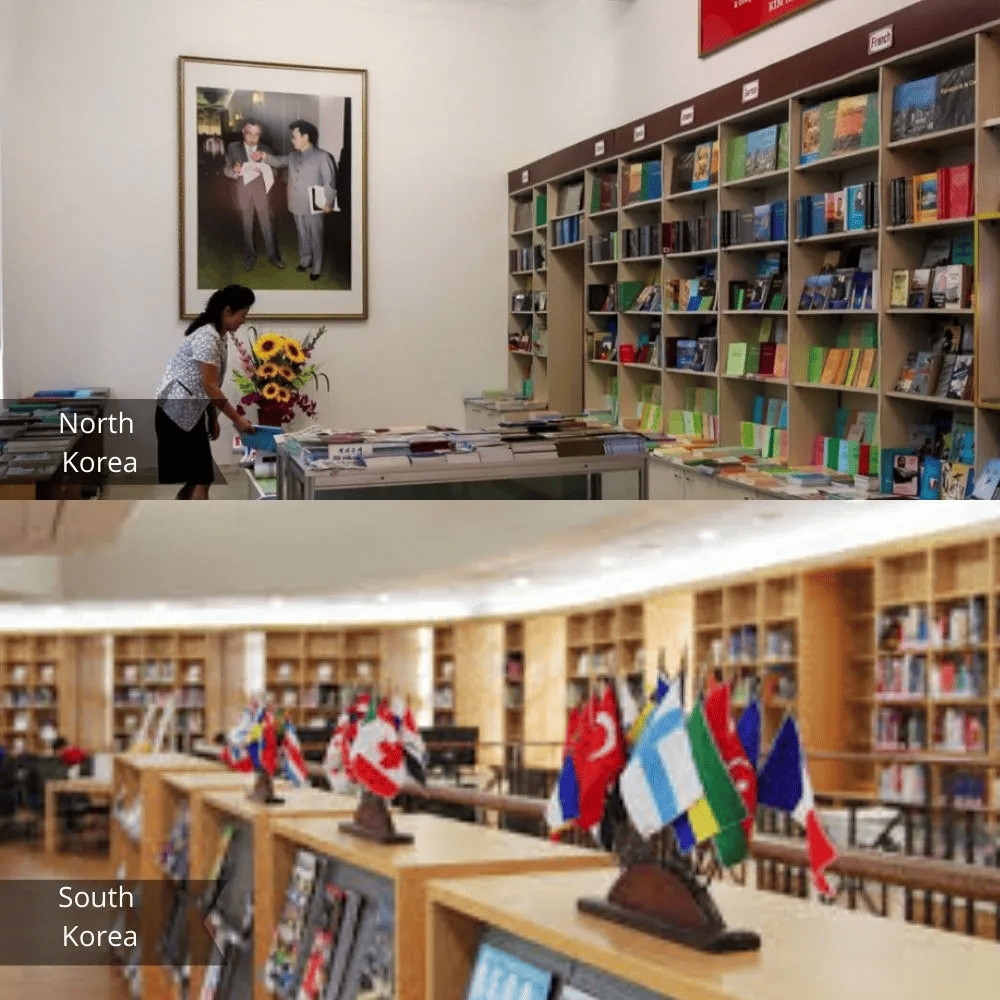Foreign Language Book Selection
In North Korea, approving foreign language books, like other forms of media, adheres to stringent protocols and is heavily influenced by the state's ideological agenda. Many foreign language books with potentially divisive or conflicting ideas are not translated or made available to the public. This restriction limits North Korean citizens' exposure to alternative viewpoints, reinforcing the control exercised by North Korean leaders over the flow of information.

On the contrary, South Korea maintains a more open and diverse selection of foreign language books. The wider availability of translated literature and diverse perspectives in South Korea allows its citizens to access a broader range of ideas, fostering intellectual curiosity and a more pluralistic society. This contrast underscores the differences in how both countries handle the dissemination of information and the promotion of varied viewpoints.
